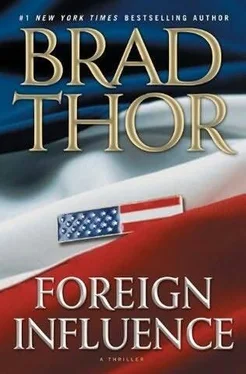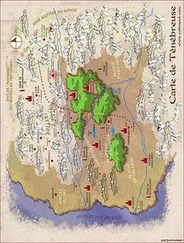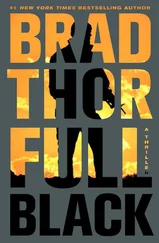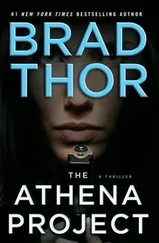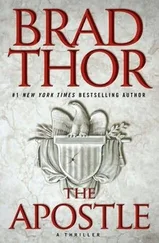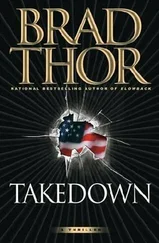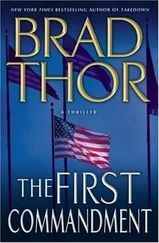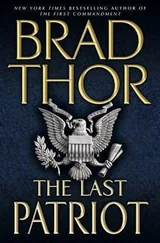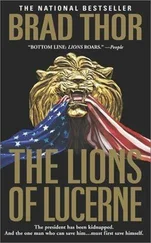“You’re welcome to see the file,” said the detective. “But we didn’t make a lot of progress. Her coworkers were blitzed. Even if we had located the cabbie, their testimony would have been worthless in court.”
“I’m sure you guys did the best you could. I just want to be able to tell the family we didn’t leave any stones unturned.”
“I hear you. When can you get down here?”
Vaughan looked at his watch. “How’s a half hour?”
“I probably won’t be here, but-” There were a couple of seconds of silence while the detective muffled the mouthpiece before coming back on the line. “Ask for Detective Ramirez. I’ll leave the file with her.”
Vaughan wrote down the name and was about to thank the man, but he didn’t get the chance. The detective had hung up.
The half-hour drive, thanks to Chicago traffic, took almost an hour. When he arrived at Area Five and found Detective Ramirez, she told him, “You’re late,” as she handed him the file and offered to let him join her at her desk.
He hung his suit coat over the back of the metal chair, removed his notebook and pen, and opened the file. The detective he had spoken with had been right. They hadn’t made a lot of progress.
There was an incident report, pictures from the scene, and witness statements. In addition to the statements taken right after the hit-and-run, the detectives had gone back to interview Alison Taylor’s friends when they were sober.
A piece of black plastic had been recovered from the scene and was believed to have come from one of those triangular, rooftop advertising setups popular on taxis throughout the city.
The neighborhood had been canvassed for further witnesses and phone calls had been made to all of the cab companies. None of it resulted in any additional leads.
Vaughan arrived at the end of the file. Flipping the last page over he said, “Where’s the blue light camera footage from the intersection?”
Ramirez didn’t even bother looking up from the report she was reading. Reaching into her desk drawer, she withdrew the DVD the detective had given her for Vaughan to look at.
“Is this a copy for me to keep?”
“No. That’s our copy. There’s a DVD player in the conference room,” she said pointing across the sea of desks to a door on the other side of the room.
Vaughan took the disc and walked over to the conference room. He was back fifteen minutes later.
“God, I hate our blue light cams.”
Ramirez was still working on her report and not very interested in Vaughan ’s problems. “Let me guess. The footage was blurry, and the camera automatically panned right at the minute you needed to see something.”
“Exactly.”
“Those cameras aren’t for solving crimes,” she said, looking up. “They’re for deterring crimes. I’m surprised they record any footage at all.”
Vaughan shook his head. They had footage of the cab speeding through the intersection, but it had happened so fast it was all blurry. And just like she had said, the camera panned away at the crucial moment where the cab number could have been identified. “There has to be another camera that caught this accident.”
“Are you done with that?” she asked as Vaughan began tapping his thigh with the folder.
“Yeah, I’m done,” he said, handing it back to her. Standing up, he removed his jacket from the back of the chair and pulled out his business card. “In case anything comes up.”
She dropped it into the file and offered him a piece of advice. “Because you’re a lawyer probably getting paid by the hour, I’m not going to tell you you’re wasting your time, but there are a lot of cabs in the city. Don’t get too emotionally involved.”
Vaughan understood where she was coming from. Detachment was the key to staying sane in their line of work. He still shook his head. “Lawyer, cop, it doesn’t matter. I’m a human being, and so was the woman who got run down in that intersection. I want to find the guy who did this.”
Ramirez held his gaze for a moment and then dropped her eyes back to the report she’d been using as an excuse to ignore him. “Have a nice evening, counselor.”

BILBAO
WEDNESDAY
Harvath spent a good portion of the morning doing additional reconnaissance on the tobacco shop. Just after ten a.m., he stepped away from the tour group he was shadowing and with both his Glock and Taser handy, entered the shop.
The old man behind the counter didn’t even bother looking up.
“Do you have Argos and Draco brand cigarettes?” he asked in Spanish, using the names of the Troll’s two dogs.
“Three Euros,” the old man replied, reaching under the counter and producing a pack of Fortuna Lites.
Harvath gave him the cash, pocketed the cigarettes, and exited the store. He conducted what felt like his hundredth SDR of the day and when he was confident he wasn’t being followed, walked into a small hotel he had identified earlier and headed into its café. Taking a table near the back, he ordered coffee. Once the waiter had walked away, he pulled out the pack of cigarettes and examined it.
It had a plastic wrapper, but had been opened from the bottom and re-sealed. Harvath peeled off the plastic and opened the package at the top. It was stuffed with tissue paper. After removing the paper, he withdrew a car key rubber-banded to a prepaid parking receipt. In addition to the name and address of the parking facility, someone had written C-11.
Harvath remembered having joked that the only thing the Troll’s offer was missing was a dark alley. It would seem that he hadn’t been creative enough. A dark parking structure was much more apropos.
The underground garage was on the other side of the river. It took Harvath about fifteen minutes to walk there, fifteen minutes for reconnaissance, and another five to locate the car. So far, so good.
He found a structural column and used it for cover as he depressed the button on the remote. The lights flashed. The door unlocked.
After thoroughly checking the vehicle for explosives, he tossed in his backpack, climbed into the driver’s seat, and started the car. He reversed out of the space, drove up two levels, and after using the prepaid receipt, exited the facility.
He drove through several neighborhoods before finally pulling over and looking for a clue as to where he was supposed to go next.
Inside the glove compartment were a portable GPS device, a window mount, and cigarette adaptor. After powering up the GPS, he toggled to the screen with pre-loaded routes and saw it contained one destination labeled “Nicholas.”
It appeared to be a village in the Basque Pyrenees. According to the GPS, the drive was five hours and forty-three minutes. Harvath kept his gun where he could get to it.
Incredibly, he found a radio station playing the American funk classic “Pass the Peas” by Fred Wesley, and turning up the volume, he pointed the car toward the Autopista and stepped on the accelerator.
Fifteen kilometers outside of Bilbao, he noticed he was being followed.

The immediate exits outside the city offered only bad neighborhoods, and the shoulder of the highway was equally dangerous. Harvath decided to wait.
As long as they weren’t trying to overtake him and run him off the road, he was fine. The problem lay in whether or not there was an ambush waiting somewhere up along the route; somewhere he could be forced off the road and everything could be made to look like an accident.
Читать дальше
